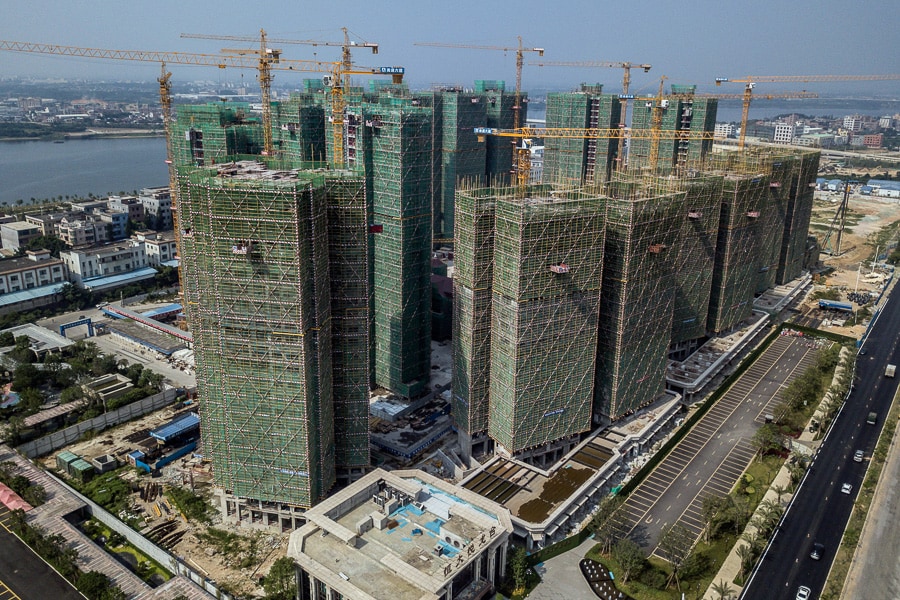
As Evergrande teeters, Chinese media walks a fine line
The name "Evergrande" has barely been mentioned by top state-run news outlets in recent weeks, even as the company's uncertain fate has rattled global financial markets
 A China Evergrande Group construction site in Dongguan, China, on Sept. 28, 2021. Officials want to avert public panic about the property developer’s financial woes, but they also want to send a message to spendthrift corporations.
A China Evergrande Group construction site in Dongguan, China, on Sept. 28, 2021. Officials want to avert public panic about the property developer’s financial woes, but they also want to send a message to spendthrift corporations.
Image: Gilles Sabrié/The New York Times
As China Evergrande Group teeters on the edge of collapse, videos of protesting homebuyers have flooded social media. Online government message boards teem with complaints and pleas for intervention to save the huge property developer. The hashtag “What does Evergrande mean for the real estate market?” has been viewed more than 160 million times on one platform.
But if trouble threatens for China’s economy, you would not know it from reading the country’s front pages.
The name “Evergrande” has barely been mentioned by top state-run news outlets in recent weeks, even as the company’s uncertain fate has rattled global financial markets.
Coverage of its recent troubles has been concentrated in a handful of business publications.
©2019 New York Times News Service







